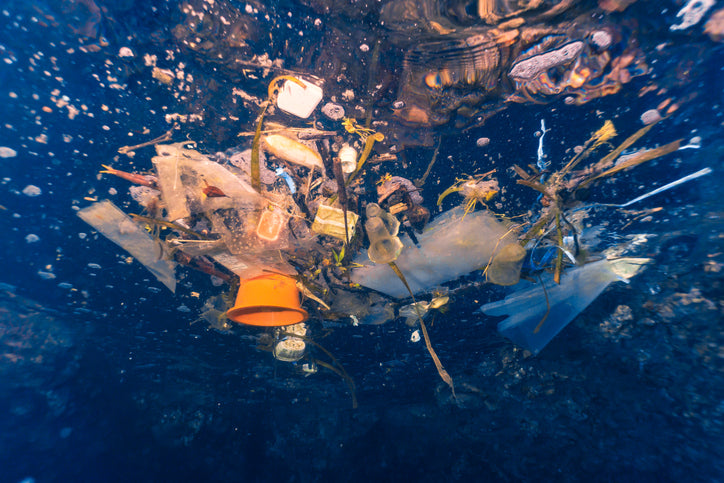
The Impact of COVID-19 on Single-Use Plastics
Global awareness of plastic pollution has been growing in recent years, along with changing attitudes and behaviours towards the use of single use plastics and fossil fuels, from which plastics are made. With millions of tons of plastic being pumped into the environment each year, we are increasingly confronted with images of beaches and oceans inundated with plastic bags and other single use plastics, and stories of microplastics and toxic chemicals that impact wildlife and human health. With the changing consumer mindset towards more sustainable energy and consumer products, we have seen a movement globally to ban single use plastics at varying governmental levels.
Understandably, the coronavirus has diverted our attention to concerns regarding health, hygiene and safety. The fight against plastic pollution has taken a back seat as governments, businesses and consumers have shifted their focus towards measures to minimize the impact of COVID-19 and flattening the curve.
Prior to the pandemic, awareness and education of plastic pollution was increasing and efforts were being made at all levels to reduce, reuse and recycle plastics. With the severe threat posed by the COVID-19 virus on the health and safety of humans globally, this crisis has created a shift in mindset and habits, even for those more environmentally conscious.
- With families being confined to their households, eating out has now changed to home delivery or takeaway. This has increased the number of single use items such as plastic disposable containers, cutlery, plastic bottles, and plastic straws being used by restaurants and food businesses.
- As consumers flock to grocery stores and other retail outlets to stock up on essential goods, it has created record demand for products housed in plastic containers such as disposable wipes, cleaning agents and hand sanitizers.
- Some grocery retailers have temporarily banned the use of reusable shopping bags and have switched back to single use plastic shopping Bans on disposable bags have been lifted in certain areas (eg. California) while other areas such as New York, New Jersey and the UK have delayed the timing of their respective bans slated for later this year. The original belief was that plastic items were less likely to carry the virus, but research has indicated the opposite. In fact, the virus can survive on plastics or other hard, shiny surfaces for up to 3x as long as paper, cardboard and fabrics, making it more of a risk for transmission of the virus.
- In an effort to stop the spread of coronavirus, many coffee outlets such as Starbucks have banned the use of reusable coffee containers and water bottles, resulting in increased usage of single use coffee cups.
The current increase in single-use plastics is understandable, but we can’t lose sight of the ongoing concerns we all face when it comes to the preservation of our environment. There are steps we can take that don’t compromise our ability to stay safe and healthy during this pandemic, while at the same time, curbing the usage of single use plastic waste. These include:
- Some restaurants continue to offer paper or cardboard takeout containers that are 100% compostable so cater to these eco-friendly businesses. For other outlets that provide disposable containers, ask that they consider using more sustainable takeaway and delivery packages and specifically request that plastic cutlery and straws not be included with your order
- When shopping at grocery outlets or picking up takeout, bring your own reusable bags rather than accepting the disposable plastic bag option. Prioritize reusable but plastic free options made from fabrics such as cotton, as they last longer, are fully biodegradable and are more sanitary (i.e. can be washed). Also, when shopping at retailers that don’t allow reusable shopping bags in store, consider putting groceries directly in your cart and transferring them to your reusable bags when back at your car
- Eliminate single use plastic food storage solutions at home (Ziploc bags, Saran wrap) and use reusable, plastic free options such as beeswax bags or wraps. A brand such as BeeBAGZ is very versatile and can be used as lunch bags, snacks bags or produce bags for home storage or on the go. These products help to keep food fresher, longer than storage in plastic containers and this is especially important during this pandemic, when more households are having to eat at home. By preserving food, these products also help to minimize food wastage.
- Rather than purchasing commercial disinfectants, which are difficult to find in stores these days, and can be full of toxic chemicals, consider making your own DIY solutions for cleaning and disinfecting. To be effective against the coronavirus, ensure solutions consist of chemicals such as hydrogen peroxide, isopropyl alcohol and/or household bleach.
Articles sourced: